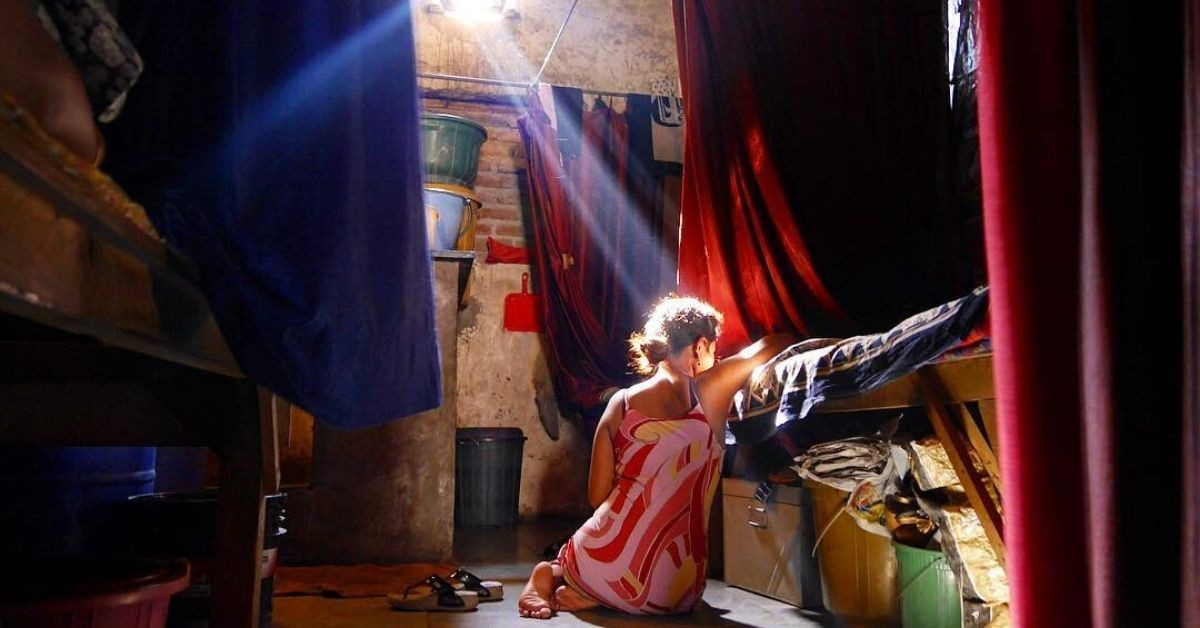India
Sex workers recognised as ‘informal workers’ in NHRC’s advisory
National Human Rights Commission (NHRC), in its advisory issued on Wednesday, October 7, 2020, recognised the sex workers as informal workers and be registered so that they are able to get worker benefits.

The small office of Saheli Sangh, an organisation that has been working for the welfare of the sex workers in Budhwar Peth, Pune’s red light area, was lit with joy on Friday. The sex workers in the area were just getting to know that they have finally been recognised as ‘informal workers’ by the government. “I am so happy today, finally we have been given the status of workers. We have ordered ‘pedhas’, we are partying today,” said a sex worker beaming with the newfound respect that she had been struggling for several years.
The National Human Rights Commission (NHRC), in its advisory issued on Wednesday, October 7, 2020, recognised the sex workers as informal workers and be registered so that they are able to get worker benefits. The recommendations for sex workers are listed under the ‘women at work’ section. This decision has come after years of struggle and fight by the sex workers and their organisations to be recognised as workers. The advisory contains several recommendations made to the Commission by the National Network of Sex Workers (NNSW). The submission was made by NNSW to a committee assessing the impact of the COVID-19 on the people's human rights in August 2020. One of the coordinators of NNSW, Ayesha Rai from Delhi, told Indie Journal that the recommendations submitted earlier constituted voices of sex workers from all across the country.
@India_NHRC recognises & includes the recommendations of sex workers in its Advisory on COVID19. In a very welcome classification, sex workers have been included under the category Women at Work!
— National Network of Sex Workers, India (NNSW) (@NNSWIndia) October 9, 2020
https://t.co/qIYBm06DPM@ayeesha_rai @nishagulur @meenaseshu @AarthiPai https://t.co/e2pfGgGzR4
“Six of the eight demands that we have made have been clearly stated in the advisory. We are very happy,” Tejaswee Sevekari of the Saheli Sangh said while speaking to India Journal. “This has been the success of our advocacy for years. We had fought for decriminalisation of the work for so long. We wholeheartedly welcome this decision,” she added.
The recognition has brought these women what they have always craved for - dignity. “It has been 14 years since I came to Budhwar Peth. I have only seen sex workers being looked down upon. But today, I can proudly say that I am also a worker. It’s a different feeling,” the sex worker said.
Calling this victory “momentous”, Aarti Pai, Executive Director of Sangram and a supporter of the NNSW added that this decision has come at a very critical time, especially when the Coronavirus pandemic and the lockdowns had affected the lives and livelihoods of the sex workers so adversely.
As per the advisory, the NHRC has stated that the state governments may provide assistance and relief to sex workers, especially lactating mothers. It has also been mentioned that temporary documents may be issued that enable sex workers to access welfare measures such as Public Distribution System (PDS) as many do not possess ration cards or other citizenry documents. Migrant sex workers may be included in the schemes and benefits for migrant workers, the advisory adds.
“We will now be able to demand inclusion in the relief schemes pertaining to COVID-19 pandemic. We will be able to ask for better relief packages,” Sevekari added.
“One of the major highlights of the advisory is that it reflects upon multiple different factors that affect sex workers. It recommends mechanisms for access to ration even if the workers don't have identification documents. It also goes on to ensure healthcare facilities to the sex workers," Pai adds.
The advisory has stated that the governments must ensure access to free testing and treatment for COVID-19, and also provide soaps, sanitizers and appropriate masks to all sex workers at different localities. It also advises access to healthcare services, especially for the prevention of HIV and other sexually transmitted infections and their treatments.
“What remains to see is how the advisory will be implemented. We have to now see where this recognition takes us. We are happy, but the next step would be to submit this at various levels to governance and ensure its implementation,” Rai adds.





